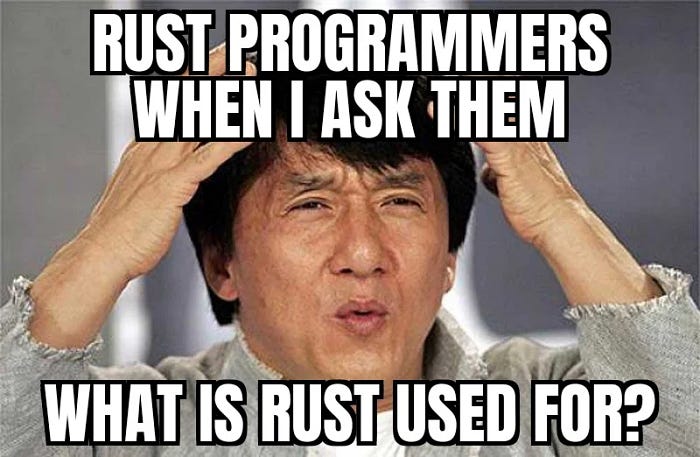For years now, Rust has been hailed as the savior of systems programming. It promises memory safety, performance close to C++, and modern tooling. It has a vocal community, glowing blog posts, and even adoption by companies like Microsoft and Dropbox. But let's pause for a moment: is Rust really the future of systems programming, or is it just another stop on the hype cycle?
I argue the latter. Rust is brilliant in many ways, but its steep learning curve, long compile times, and complex abstractions will prevent mass adoption in the same way C and C++ entrenched themselves decades ago. Let's unpack this claim.
The Compile-Time Problem
Rust's compile times are notoriously long. Yes, there are optimizations and nightly tricks, but in practice, developers spend an uncomfortable amount of time waiting.
Example comparison (small benchmark):
# C++ (g++)
$ time g++ main.cpp -o main
real 0m0.4s
# Rust (cargo build --release)
$ time cargo build --release
real 0m9.7sThat's more than 20x slower in a trivial example. In larger codebases, waiting minutes for a build is common. Productivity drops sharply, and iteration slows down. A language that promises modern productivity can't afford this tax.
The Learning Curve
Rust's ownership model is both revolutionary and punishing. Borrowing, lifetimes, and references are beautiful on paper, but in practice, they overwhelm newcomers.
A simple function in C++:
string greet(const string& name) {
return "Hello, " + name;
}The Rust equivalent:
fn greet(name: &str) -> String {
format!("Hello, {}", name)
}Looks fine until you try returning borrowed data, juggling lifetimes, or writing anything non-trivial. Suddenly, the compiler starts screaming:
error[E0515]: cannot return value referencing local variableThis is a rite of passage in Rust — fighting the borrow checker until you rewrite your logic three times. For veterans, it's empowering. For newcomers, it's exhausting.
Complexity vs. Adoption
The problem isn't that Rust is bad. The problem is that systems programming thrives on stability and accessibility. C became dominant because it was simple and easy to learn. Rust, by contrast, asks programmers to master ownership semantics, lifetimes, traits, and macros before they can be productive.
Here's a visual comparison:
C code structure:
+ main.c
- main()
- helper()
Rust project structure:
+ Cargo.toml
+ src/
- main.rs
- lib.rs
- modules/
- mod1.rs
- mod2.rsRust imposes conventions, modules, and macros early on. This helps in large projects, but for small or embedded systems, it feels like overkill.
The Migration Decision Tree
If you're a team deciding whether to adopt Rust, here's a crude but useful guide:
Is memory safety your #1 priority?
├── Yes → Can you afford long compile times and a steep learning curve?
│ ├── Yes → Rust is viable.
│ └── No → Stick to C++ with sanitizers.
└── No →
├── Need portability and existing ecosystem? → Use C.
└── Need performance + modern abstractions? → Use C++.Rust shines when memory safety is critical (OS kernels, cryptography), but in most real-world scenarios, the trade-offs don't justify the pain.
The Hype Cycle
If you plot Rust on Gartner's hype cycle, it looks like this:
Peak of Inflated Expectations
/
/
Rust ---------/
/
/ ← Where we are now
/ (Trough of Disillusionment)Many developers are hitting the wall of compile times, tooling quirks, and real-world adoption struggles. Rust is incredible for certain niches but unlikely to replace C or C++ at scale.
A Balanced Perspective
Rust is a phenomenal piece of engineering. It forces us to think about memory safety in ways we've ignored for decades. It pushes the industry forward. But the idea that it will replace C or C++ outright? That's a fantasy.
Most likely, Rust will carve out a respectable niche in OS kernels, blockchain, and safety-critical codebases. But for the broader world of systems programming, the inertia of simplicity, tooling, and decades of C/C++ dominance is too strong.
Rust isn't the future of systems programming. It's the current hype cycle — and like every cycle, it will settle into a niche rather than take the crown.
Final Thought
Celebrate Rust for what it is: a powerful, safe, and modern tool that's perfect for specific high-risk domains. But don't confuse hype with destiny. The future of systems programming won't belong to one language — it will belong to many, Rust included, but not as the sole heir.

